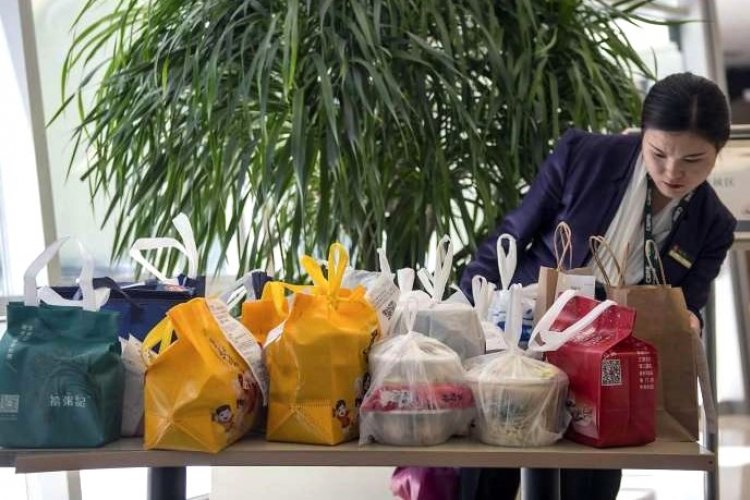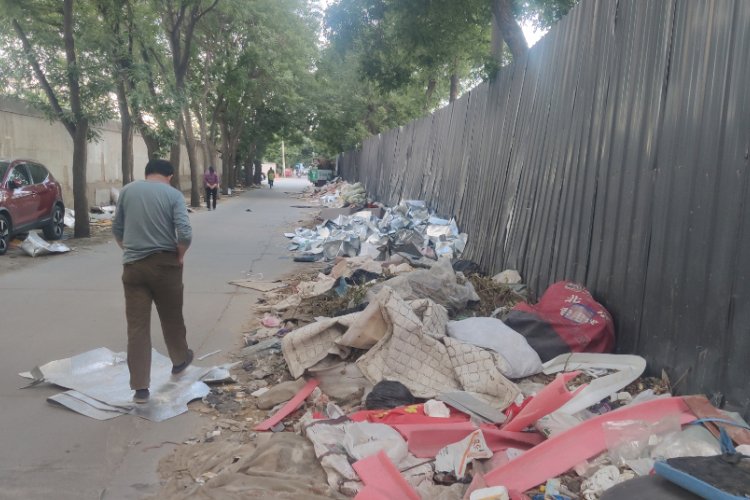A Load of Rubbish? Not So: Beijing Announces Long Overdue Trash Sorting Rules
After months of speculation and news of its impending arrival, the trash sorting system has finally reached Beijing! From May 1, 2020, the Beijing municipal government will implement a detailed trash sorting system. Effective citywide, trash sorting is intended to help tackle those daily pollutants that contribute to urban environmental waste.
The trash sorting rules were announced on Nov 27 at a Standing Committee of the 16th meeting of the 15th Beijing Municipal People's Congress. They build on 2012 regulations but apply more pressure to businesses and individuals to be responsible for their own waste sorting.
Similar initiatives have already been rolled out in Shanghai, with large-scale efforts to educate residents – in some cases with community leaders resorting to shaming techniques. However, many have been left befuddled by the many different categories of rubbish, showing that education initiatives still have a long way to go (cue melodic rap propaganda).
Some of the new regulations have been along time coming, such as banning thin plastic bags, holding delivery companies accountable for the plastic utensils, bags, and other waste that they create, as well as forcing courier services to use biodegradable packaging. Here are some of the other biggest takeaways in Beijing's renewed war on trash:
Key takeaways
- There will be four types of trash. All trash will be categorized as either kitchen waste, hazardous waste, recyclables, or other waste.
- Responsibility mandate. It is now explicitly the responsibility of businesses and individuals, not local or community leaders, to ensure proper trash sorting.
- Fines for non-compliance. Individual repeat offenders will pay between RMB 50-200 for subsequent violations, while businesses will pay between RMB 1,000-50,000 depending on the severity and frequency of the violation. Local officials have been directed to adopt an “education first, punishment later” approach, meaning that fines should be only levied as a last resort. Offenders are first supposed to be offered a chance to volunteer in penance.
- New responsibility for the service sector. Delivery services, caterers, and hotels will be responsible for posting information as to how to dispose of items they provide (plastic utensils, bags, and other waste).
- Ban on thin plastic bags. Shops and markets will be banned from selling or using thin plastic bags, and the production of such plastic bags will also be banned.
- New requirements for couriers. Courier services will be required to provide electronic receipts and biodegradable packaging.
- Reduce and reuse. Businesses and government institutions are encouraged to adopt waste saving measures. Such measures include using electronic recordkeeping systems and using recycled paper and reusable kitchenware.
These measures were announced following news that China’s largest landfill is full 25 years earlier than planned, as well as moves last year to cancel waste imports from foreign countries. China is aiming to sort out its waste problem on a national scale, and Shanghai, and now Beijing are the first frontiers in that effort.
Whether the drive to clean up Beijing's waste management system is successful or not will largely depend on how well the rules are enforced (see: smoking indoors, which took close to 10 years to eradicate) with serious fines being dished out to the worst offenders. Nevertheless, we're happy to welcome these new restrictions in a bid to help Beijing clean up its act.
READ: In 2008 Beijing Declared War on Plastic Bags... So What Happened?
Images: China Dialogue
Related stories :
Comments
New comments are displayed first.Comments
![]() LysanderWrites
Submitted by Guest on Fri, 11/29/2019 - 19:48 Permalink
LysanderWrites
Submitted by Guest on Fri, 11/29/2019 - 19:48 Permalink
Re: A Load of Rubbish? Not So: Beijing Announces Long Overdue...
I already separate my rubbish into kitchen waste, recyclables and other waste but the problem will be convincing people that they actually need to do this instead of just throwing everything into whicher bin is the closest or least full. Individual responsibility is one of the reasons why a large proportion of dog owners in Beijing and China at large don't pick up their pets faeces.
Validate your mobile phone number to post comments.





